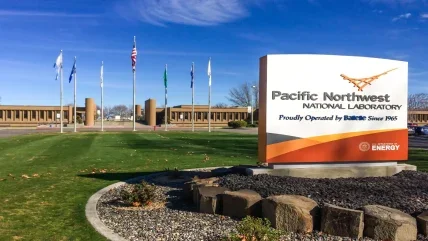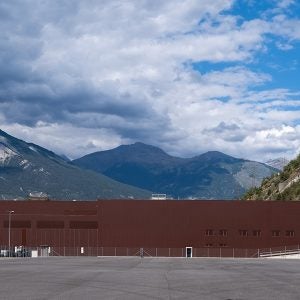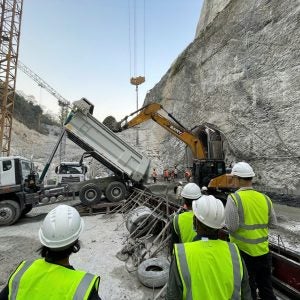
The University of Texas at El Paso (UTEP) and the Pacific Northwest National Laboratory (PNNL) have joined forces to address the critical need for cybersecurity experts in the hydropower sector. With hydropower contributing 6% of the US’ electricity supply and undergoing modernization with digital control systems, the demand for skilled professionals in cybersecurity has become urgent.
PNNL has initiated the Training Outreach and Recruitment for Cybersecurity in Hydropower (TORCH) program at UTEP, marking the university as the first institution to implement this initiative. Funded by the Water Power Technologies Office within the Department of Energy, TORCH aims to bridge the gap between cybersecurity and engineering students, a challenge highlighted by Penny McKenzie, PNNL cybersecurity engineer and principal investigator.
“It can be very difficult to find students that are interested in cybersecurity and also have an engineering background. Typically, there are either cyber students or engineering students,” said McKenzie. “TORCH is designed to bridge that gap.”
Salamah Salamah, Ph.D., UTEP professor and chair of computer science, expressed enthusiasm about the collaboration, emphasizing its real-world benefits for students.
“We are extremely excited about the continued collaboration with PNNL, which benefits our students by bringing real-world problems to our classrooms and research endeavors,” Salamah said. “The TORCH program exposes our students to state-of-the-art technologies and advances in an area of significant importance to the nation, namely the security of hydropower systems. The combination of UTEP’s strengths in cybersecurity and the TORCH program will enhance our students’ preparedness for impactful careers in the different areas of cybersecurity.”
TORCH creates opportunities for students to form their education and support a career path in hydropower.
Staff at PNNL including co-principal investigator and Systems Engineer Chelsea Gonzales and Consuelo Ramirez, who is a UTEP software engineering graduate student, worked to develop the curriculum.
“TORCH taught me the importance of implementing cybersecurity practices in hydropower,” said Ramirez. “I’m excited to bring the curriculum I worked so hard to help develop back to El Paso and share the knowledge and insight I’ve gained with others. It’s a great initiative and hopefully it entices them to take a workshop and learn more.”
The curriculum was initially piloted at Columbia Basin College in Pasco, WA.
“We’ve met many people at conferences and universities who are excited about TORCH and want to help develop curriculum and give feedback to improve it,” said Gonzales. “We’re continuously refining the curriculum for the maximum benefit of our students.”
The TORCH team, in collaboration with UTEP, is transitioning the curriculum into a one-credit course available to students in spring 2024. Additionally, the program will engage with minority-serving institutions like Columbia Basin College and Grambling State University to broaden its reach and impact.
Danielle Young, TORCH project manager at PNNL, stressed the program's role in fostering national security and nurturing students' passion for purpose-driven careers in hydropower cybersecurity.
“I think that national security cannot be overemphasized, and this is a really great opportunity for us to help foster relationships between students and industry. We want to help young achievers get into areas of work that they can feel passionate about and feel purpose with, and hopefully that might be in hydropower,” Young said.
Looking ahead, the TORCH team is looking to extend its outreach efforts to current personnel at hydro facilities and even K-12 students, with the goal of inspiring the next generation of cybersecurity professionals in hydropower.

Penny McKenzie introduces the Training, Outreach, and Recruitment of Cybersecurity in Hydropower program to students at The University of Texas at El Paso. Image courtesy of UTEP






